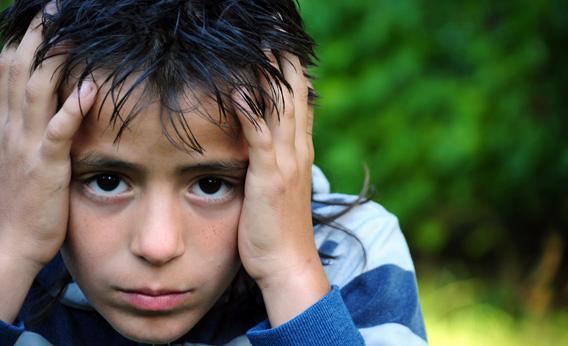Although GOP leaders have condemned Missouri Senate candidate Todd Akin’s claim that “legitimate rape” rarely causes pregnancy, the party on Tuesday adopted anti-abortion platform language that does not include an exception for rape. If a mother decides to carry a child conceived in rape to term, should she tell him or her about the rape?
Probably. Researchers estimate that approximately 12,000 children are born as the result of rape every year, and the majority of them are raised by birth mothers. The few scholars who have addressed the question of how to parent these children suggest that honesty is usually the best choice. Concealing the facts of the child’s conception requires an elaborate lie. Many children eventually discover the truth, often when a family member refuses to participate in the fabrication. When the facts come out, the child usually expresses frustration or rage at the mother. In contrast, children who learn about the circumstances of their conception at an earlier age often struggle psychologically, but eventually report that they prefer knowing to not knowing.
A child who has just begun to ask about his origins is probably too young to be told that his father was a rapist. The best response a mother can give at that time is to simply say that she didn’t know the father very well. (Unless she was the victim of acquaintance rape or incest, which can complicate matters further.) Mothers often use what psychologists call a “soft truth,” saying that the father wanted to be with her more than she wanted to be with the father. When the child gets slightly older, some mothers decide to explain in vague terms that the father committed some act of violence against her. These disclosures begin to prepare the child to hear the truth, once he’s old enough to understand it. Most mothers wait until the child is about 12 or 13 before fully disclosing the rape. Children at this point become curious about the full details of the incident, and mothers typically feel that the only option is to answer those questions honestly. People involved in these cases say the most important thing is to avoid painting the father as a monster: Even small children worry that they might share some of a rapist father’s traits.
One study estimated that 6 percent of children conceived in rape are given up for adoption, while another puts the number at 26 percent. (One percent of children in the general population are given up for adoption.) While concealing the facts of conception is easier in these cases, some adopted children learn the truth as adults from an adoption caseworker, while others find out from the biological mother herself. Adoptive parents typically have an easier time than the biological mother divulging the truth about the child’s conception. During early childhood, they can honestly say they didn’t know the biological parents. That usually satisfies an adoptee, giving the parents the ability to choose the appropriate moment to tell the full story.
Got a question about today’s news? Ask the Explainer.
Explainer thanks Laura Davis, co-author of The Courage To Heal: A Guide for Women Survivors of Child Sexual Abuse, Helen Herrman of the University of Melbourne and co-author of Parenthood and Mental Health: A Bridge Between Infant and Adult Psychiatry, and Rebecca Kiessling of Hope After Rape Conception.
